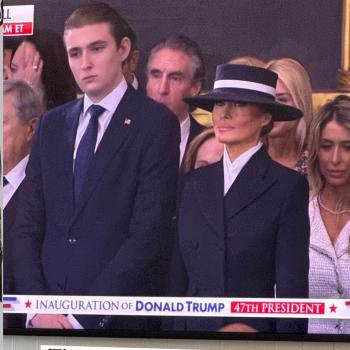In the forthcoming New Yorker, Elizabeth Kolbert writes a terrific article titled "Spoiled Rotten," where she compares kids of the Matsigenka, a tribe that lives in the Peruvian Amazon, with kids from Los Angeles. In particular, she notes the difference in the children's levels of engagement and efficiency. Kids of the Matsigenka are proactively looking to contribute to their families and their tribe whereas kids from L.A. need to have their arms' twisted in order to get them to budge.
One of the contributing factors to this phenomenon that Kolbert brings to light is the manner in which kids from the Matsigenka are made to fend for themselves whereas kids from L.A. are pampered and babied. The communal expectation of kids in the Matsigenka is to be functioning whereas the communal expectation of kids in L.A. is to be non-functioning. That is, Matsigenkan parents view their children as capable of real work whereas L.A. parents view their kids as incapable of real work.
No doubt such a starting point has grand ripple effects.
It seems to me that the L.A.-Western society in which we live has twisted the definition of what it means to honor parents as a result of their twisted outlook on kids and their capabilities. If you ask Average Joe what it means to honor one's parents, he'll shoot back, "to listen to them." However this is neither the Bible's intent nor the Jewish definition.
"Listening to" your parents suggests a certain loss of personal autonomy, a surrender. Does having parents mean they own you or your life decisions?
When we suggest that a child should "honor his parents" by surrendering to the parents' wishes, we suck the life out of the child. How is a child supposed to build a sense of self and independence upon which to grow if his society and his God are telling him to live his life in accordance to his father's vision? There is a big loss of self here.
On the contrary, the Jewish definition of honoring parents (and the Torah's intent) as stated in the Talmud is to "feed, give them to drink, clothe, launder, and chauffer."
Jewish law is not saying that parents own their kids and their kids' decisions, thereby sucking the individual autonomy and self-worth out of the child. Rather, Jewish law is saying that the child has to make his own choices and create his own destiny, and that part of that destiny involves the contributions he makes in the form of service to his parents.
Essentially, the child is supposed to be a butler of sorts for the parents. But a butler is not owned by his employer; the person he is working for does not decide the butler's life. It is in this manner that kids should approach their parents and parents approach their kids.
As it stands now, who is doing the "feed, give them to drink, clothe, launder, and chauffer" for whom? If the pattern in your home has the parent doing this for the child, then, according to the Torah and to Judaism, your home is backward: the parents are honoring the children instead of the children honoring the parents.
Of course, I'm not talking about an infant here, but as early as the toddler years the kids should be given the responsibility of doing these things for their parents in accordance with their capabilities (which is much more than most Western parents acknowledge), and parents should get in the mindset of letting their kids make decisions that are relevant to their own lives as much as possible.
12/2/2022 9:02:49 PM





